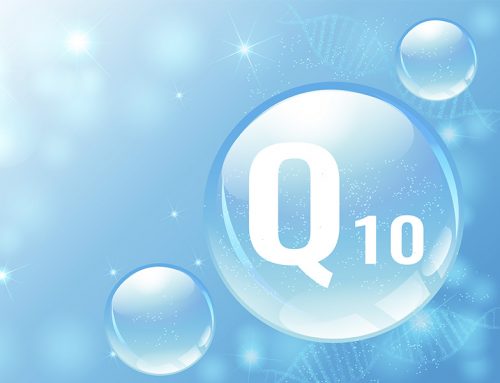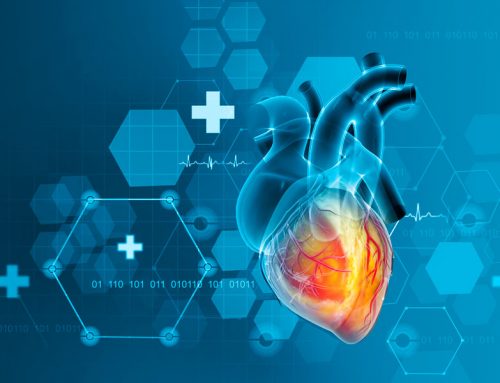
Being re-admitted to the hospital is hard on the patient and the family and the hospital system. Judicious use of Coenzyme Q10 supplements can reduce the number of re-hospitalizations.
The energy-starved heart. More than anyone, the Danish cardiologist Dr. Svend Aage Mortensen was the person who wanted to do clinical research into the phenomenon of the failing heart that was starved for energy. He thought that there was an issue in heart failure patients with heart cell mitochondria colonizing and atrophying adjacent to the cell membranes.
Less Q10 with age and with statin medications
Dr. Mortensen thought that the issue was closely related to an inadequate supply of Coenzyme Q10. As people got older, their bodies produce less Q10. They also absorb less Q10 if they begin to eat smaller meals and less meat and fish. Moreover, he knew that patients taking statin medications were having their own bio-synthesis of Coenzyme Q10 blocked by the statin medications.
Q-Symbio study a team effort
Dr. Mortensen was the lead researcher on the Q-Symbio study of the effect of Coenzyme Q10 supplementation on morbidity and mortality in chronic heart failure. In the Q-Symbio study, the number of hospital stays for heart failure patients under treatment was significantly lower in the Q10 group than in the placebo group.
The Q-Symbio researchers
Q-Symbio was, of course, a team effort; there were many capable researchers involved in the study. Perhaps it is time to acknowledge these Q10 researchers: Drs. Rosenfeldt, Kumar, Dolliner, Filipiak, Pella, Alehagen, Steurer, and Littarru. They made sure that all of the standards for a clinical investigation were upheld in the randomized, double-blind Q-Symbio clinical trial enrolling 420 heart failure patients.
3 times 100 mg Q10 per day
We owe these researchers a vote of thanks for their efforts. Thanks to them, we know that 3 x 100 mg of Q10 supplement daily, taken with meals, will have beneficial effects compared to placebo:
- Fewer re-hospitalizations
- Fewer major cardiovascular events
- Fewer cardiovascular-related deaths
- Fewer all-cause-related deaths
Q10 results published in JACC Heart Failure
These Q-Symbio researchers joined the Q-Symbio clinical trial and enrolled their patients because they could see that, even with the important advances in drugs and medical devices, treating heart failure patients successfully is a difficult undertaking. Now, with the results of the Q-Symbio study published in the December 2014 issue of the Journal of the American College of Cardiology; Heart Failure, they have shown that supplementation with Coenzyme Q10 can give their patients:
- Improved hospitalization rates
- Improved symptoms
- Improved survival
No adverse effects with Q10
Moreover, in more than 200 clinical trials using Coenzyme Q10 supplementation, there have not been any reports of adverse effects. In fact, cautious risk assessments have set the daily limit for the daily intake of Coenzyme Q10 at 1200 mg, four times the daily dosage used in the Q-Symbio study.
Q10 restores a deficiency condition
The good thing about Coenzyme Q10 supplementation as an adjunct treatment in addition to conventional therapy is that Q10 helps to restore a deficiency condition. We know that low plasma Q10 levels that are associated with heart failure.
Coenzyme Q10 supplementation does not block any process in the human cells. It does not delay or inhibit any cellular activities. Instead, it helps to restore the mitochondrial function in the heart muscle cells. It enhances the energy production process in the heart muscle cells.
Q10 important for the production of ATP
Coenzyme Q10 plays an indispensable role in the inner mitochondrial membranes in the production of adenosine triphosphate (ATP) molecules, the molecules that provide energy for metabolism within all cells.
The heart’s need for ATP (and Q10)
In a 2006 article in the journal Pharmacological Research, Drs. Ferrari, Cargnoni, and Ceconi estimated that the human heart produces and burns up about 30 kilograms (66 pounds) of ATP every day (1). An amazing amount.
The human heart produces and consumes about 11,000 kilograms (24,200 pounds) per year and about 880,000 kilograms (almost 2 million pounds) in an 80-year-long lifetime.
Beating 70 times in a minute, the human heart must beat 100,800 times a day. Every day. Day after day. Using the figures from Dr. Ferrari et al, each heart beat burns up about 300 milligrams of ATP.
Bottom line
If you don’t have as much energy as before, … if you are 40-45 or older, … and, in particular, … if you are taking statin medication, … you need to think seriously about finding a well-absorbed Coenzyme Q10 supplement. Do it for your heart. The Q-Symbio study has shown that supplementation with Q10 as an adjuvant treatement to conventional therapy for patients with moderate to severe heart failure will be safe, well tolerated, and associated
with a reduction in symptoms and adverse events.
Sources:
Ferrari, R., Cargnoni, A., & Ceconi, C. (2006, May). Anti-ischaemic effect of Ivabradine. Pharmacological Research, 53(5), 435–439.
Mortensen, S. A. (2015). Coenzyme Q10: Will this natural substance become a guideline-directed adjunctive therapy in heart failure?. JACC. Heart Failure, 3(3), 270-271.









[…] Fewer hospitalizations with Coenzyme Q10 In the Q-Symbio study, 420 chronic heart failure patients on conventional heart failure medications were randomly assigned to an adjuvant Coenzyme Q10 treatment group (n=202) or to a placebo control group (n=218). In the study, Dr. Svend Aage Mortensen and his fellow researchers wanted to test the hypothesis that the condition of the energy-starved heart could be improved by the use of Coenzyme Q10 supplementation. […]